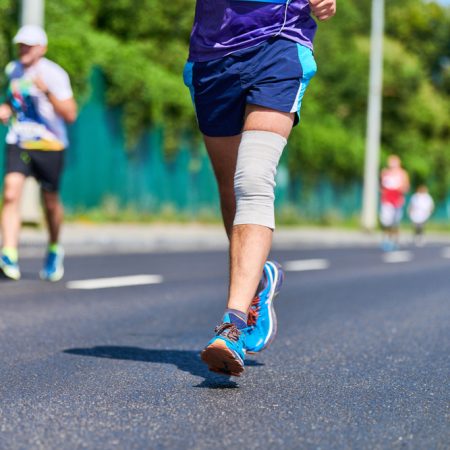Today we discuss heel striking, is it as bad as some make out or is it ok?
Most of us who have been involved in triathlon for even a few years will have heard heel striking being talked about as if its some form of dangerous practice and should be avoided at all costs. Is it really all that or is it just something that some of us do.
Firstly we need to understand what heel striking actually is. When we run our foot comes into contact with the ground and at the point where this occurs we either land on the forefoot, mid foot or heel. So heel striking is when the heel hits the ground first. This then brings us to the whole, is it bad for you? Is it dangerous? Am I going to injure myself?
Heel striking in itself is not really the problem, its where the foot lands in relation to the centre of gravity that is the problem. If we imagine a line running straight down the middle of ourself from head to toe crossing the hips in the centre when standing this will allow you to imagine where your centre of gravity is, when we start running this centre of gravity shifts forwards as we start to lean forward slightly, the ideal area for our foot to land is directly underneath this line and ultimately not really that much about how the foot lands.

I really feel that we overthink far to much in relation to all aspects of technique, that is not to say that incorrect technique shouldn’t be managed and or changed for improved performance but I really think there needs to be some consideration around if we should change and how we should change. So, if you are a heel striker and want to make a transition to being more fore footed there needs to be some questions you are asking yourself first:
1. Have I been injury free for many years?
2. Have I been getting quicker over the past 12-24 months?
If the answer to either of these is yes then you really need to think why you want to change , if you are still getting quicker and have not been injured for a long period of time is there any need for you to alter what you do. Just because you can change something doesn’t mean you should.
If you are answering no to these questions, again you should still be considering the why. Did you get injured through over training, an accident or was it your technique? Have you not been getting quicker because your training has been sporadic and/or not effective. I firmly believe that if your technique is not obviously damaging the dangers of changing it drastically to fit the ‘this is good technique’ box are far too high than leaving it alone.
Take a look at what TCC has to offer and build your fitness with us